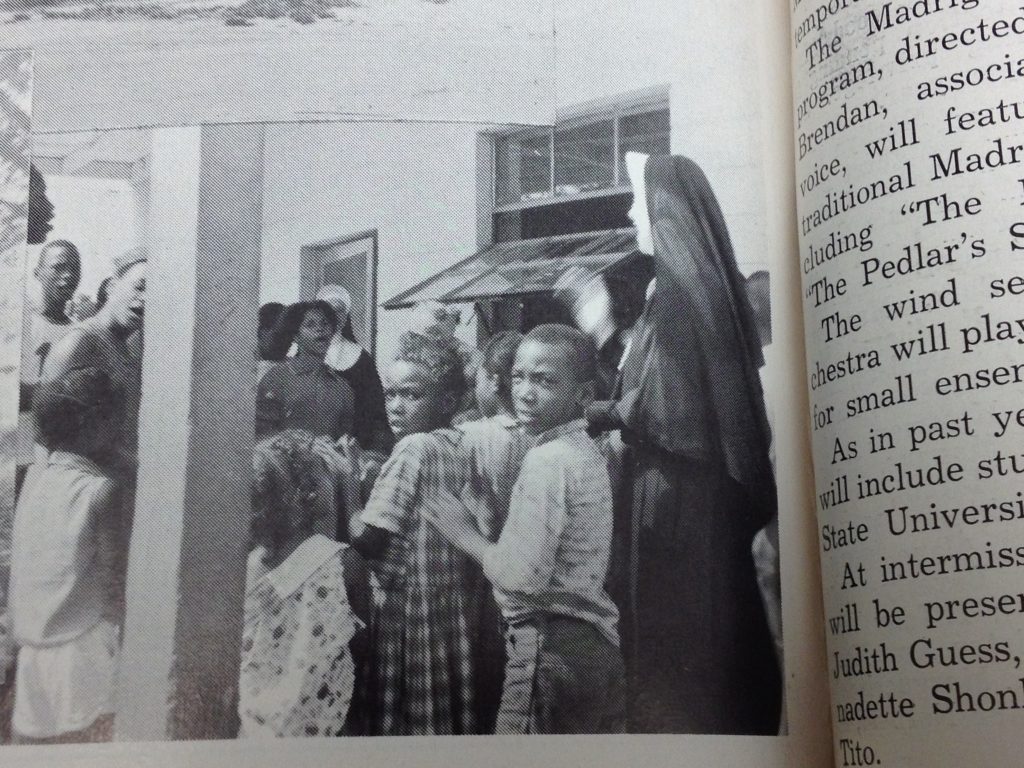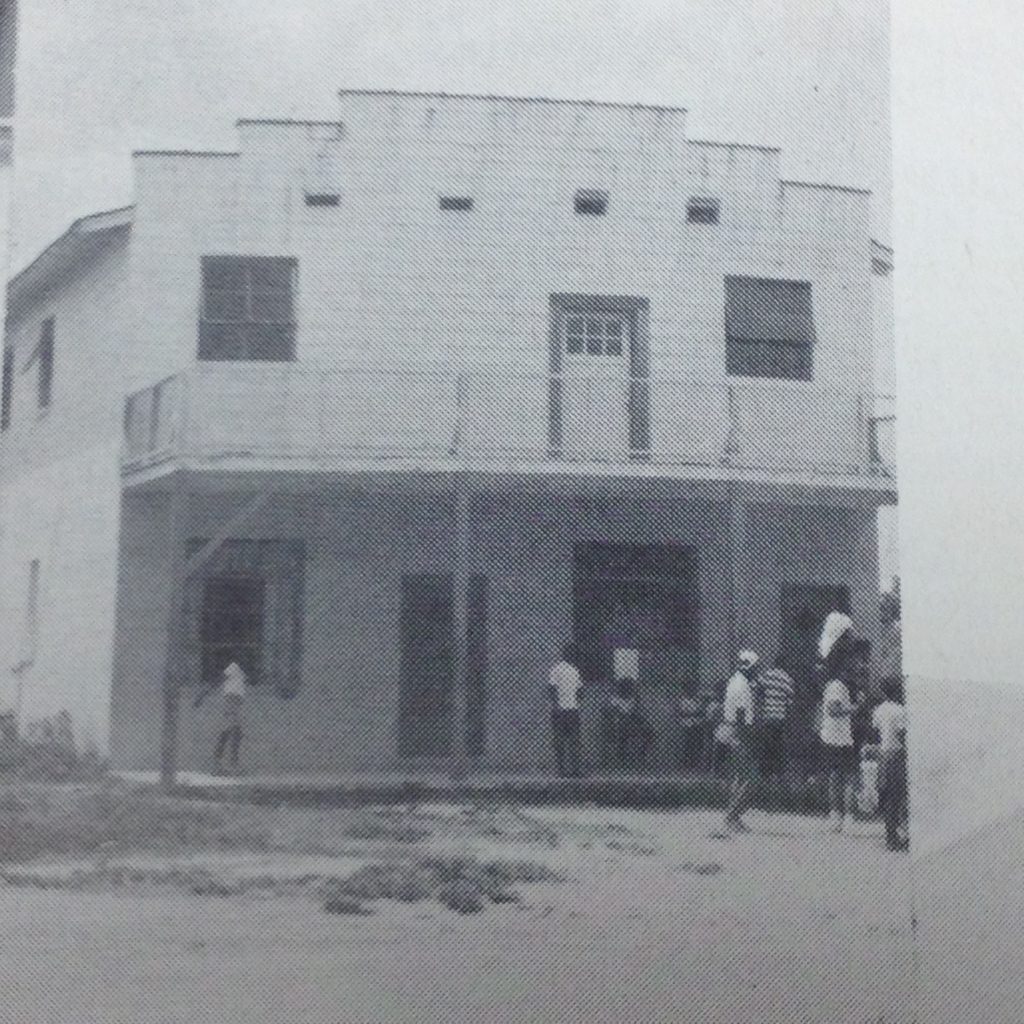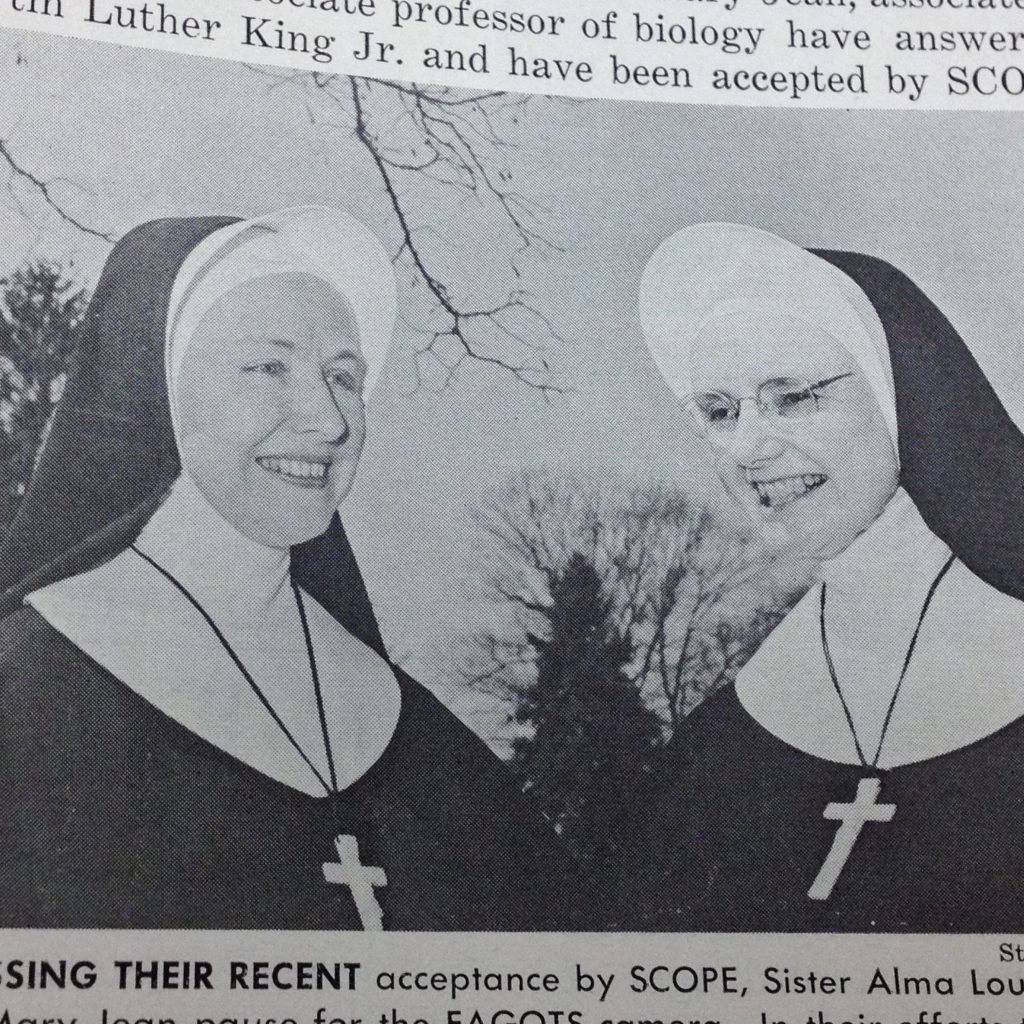As the Voting Rights Act made its way through Congress in the summer of 1965, two SMWC faculty members and six students hit the streets of Albany, Georgia, to help thousands register to vote.
By Lindsey Richardt ‘07
Midge Maroni ’68 spent the summer of 1965 in the depths of the civil rights movement. She picketed, she marched, she was arrested, and at one point, she even sought refuge from rifle-bearing members of the Ku Klux Klan. That summer, she and three other Saint Mary-of-theWoods College (SMWC) students, along with two students from Indiana State University (ISU), followed SMWC associate professors Alma Louise Mescher, SP, ’45 and Mary Jean Mark, SP to the deep south for one purpose: to fight for the rights of Black voters.

During the spring term of 1965, Marie Perpetua Hayes ’33, SP, then-president of SMWC, received a letter from Martin Luther King, Jr. inviting the College to participate in the Summer Community Organization [and] Political Education (SCOPE) program. As pressure was building for the United States Congress to pass what would become the Voting Rights Act, King was seeking volunteers from academic communities across the country to spend the summer battling disenfranchisement in the South.
This was a dangerous mission. By 1965, the civil rights movement was in full swing. America had witnessed civil rights workers putting their lives on the line as they fought for equal opportunities and voting rights.
Maroni recalls her parents’ hesitation when she asked for permission to participate. Her request came just one month after civil rights activists were brutally attacked and beaten by Alabama state troopers in a march known as Bloody Sunday.

“It was a really pivotal part in American history, not only for African Americans who were treated as second class citizens, but for our nation as a whole. It was a sad and a proud legacy — sad because of the tragedies and brutalization, and proud because so many people in America finally understood that the injustice could not stand,” said Maroni.
Sister Mark, who was well known in the Terre Haute, Indiana, community for her ecumenical work, asked local businesses to support the project and they responded generously. In addition to monetary donations, an ISU professor provided adult literacy training and a local Dodge dealership loaned the group a car for the summer. Rabbi Bernard Cohen, leader of the United Hebrew Congregation in Terre Haute and SMWC faculty member, also loaned his car.
With support from the community, The Woods answered King’s call. Maroni, Susan Sperry ’68, Juanita Garcia-Maldonado Sayres ’65, Margarete Baum ’67, as well as two students who knew Sister Mark through the ISU campus ministry program, Barbara (Koester) Foster and Robert Mullins, followed the professors to Georgia.
After orientation and training in Atlanta, the SMWC group was stationed in Albany, a medium-sized city located in southwest Georgia.
The goal was to educate and register as many Black voters as possible. On a typical day, they hosted educational programming for children during the day and adult literacy in the evening out of an abandoned building which had been turned into a school.

By the end of the summer, the group had racked up a few arrests and dangerous run-ins with the opposition — the bullet holes in the back of rabbi Cohen’s car were a poignant reminder of the dangers associated with the movement.
The Voting Rights Act was signed by Congress on Aug. 6, 1965, prohibiting the unfair practices used to prevent Black people from registering to vote. According to a report on the Civil Rights Movement Archive, the project registered more than 49,000 new voters across six states and impacted nearly a million others through political and literacy education.
Fifty-five years later, Maroni says this was a pivotal time in her life that has led to what has become a life-long commitment to justice.
“Reflecting on the summer of 1965, it was a glorious, climactic time because of the passage of the Voting Rights Act that August,” Maroni said. “I recall Reverend King’s reference to the moral arc of the universe bending toward justice and I feel that arc does not bend by itself. Justice, decency and love are not passive: human beings must actively embrace them to bend and pull that moral arc.”
This story first appeared in the Spring 2021 edition of Onyx Anneau. View the full edition online here.
